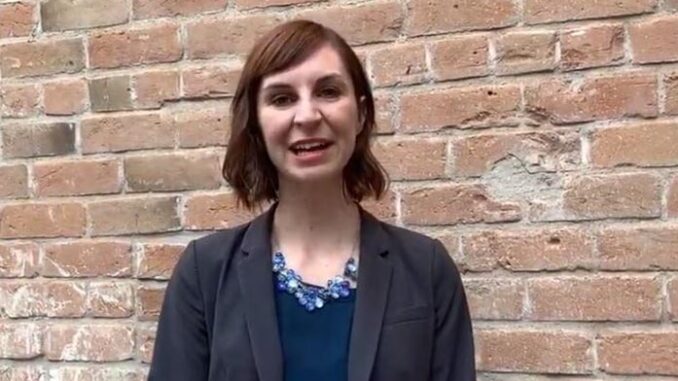
Arizona State University (ASU) indirectly tipped the proverbial hat to current Superintendent Tom Horne for sticking to facts over ideology.
The most recent report from ASU’s Center for Reinventing Public Education indicated that Horne did the right thing by defunding $40 million in COVID-19 grant funds awarded by his progressive predecessor, Kathy Hoffman, to nonprofits that couldn’t prove their work resulted in better student outcomes.
📢New Stack Up!https://t.co/NipgOKTMdg pic.twitter.com/QpJXvVZDtJ
— TheLegalProcess (v2.0 | Post-Election Ed) (@ALegalProcess) September 14, 2023
Affirmation of Horne’s decision came from CPRE’s Fall 2023 Report, about a week after Horne issued the announcement for the defunding.
Yet, Hoffman took immediate offense to her successor’s action, calling it “appalling and disgusting.” Hoffman maintained that the defunded organizations were improving the outcomes of the students they were funded to help.
It’s appalling and disgusting that the current Superintendent would claw back money from grantees awarded through a fair and competitive process. https://t.co/D8xLu1YA9F
— Kathy Hoffman (@kathyhoffman_az) September 7, 2023
According to Hoffman, the many mental health resources she’d funded were integral to student recovery. Yet, over three years after the pandemic emergency began, students have continued in their decline and fallen further and further behind. The CPRE Report emphasized that true solutions to pandemic recovery existed in proven practices directly related to academia, namely tutoring.
“Tutoring is proving to be a massive — and obvious — missed opportunity,” stated the report.
Which is exactly into what Horne reallocated the COVID-19 relief funding.
Superintendent Horne is laser focused on raising academic outcomes for students. This new tutoring program will help our students learn! #EducationForAll https://t.co/ESOrPN9V8i
— Arizona Department of Education (@azedschools) September 6, 2023
For every 10,000 to 12,000 students planned to receive tutoring for English-Language Arts (ELA) and math, respectively, only around 2,000 to 3,000 did: about 30 percent, averaging less than half the tutoring hours planned. CPRE noted that it didn’t find any district that met the goals laid out in its tutoring plan.
As noted by A Legal Process on Substack, it would take two years to overcome just one year of learning loss — that’s even with aggressive tutoring, double-time on math, an extension of the school year, and summer schooling.
The CPRE report found that it would take around one school year for the average 8th-grade student to catch up to pre-pandemic achievement levels in reading and math (seven months for reading, nine months in math).
The report essentially concluded that schools and policymakers continue to commit the folly famously summarized as the definition of insanity: repeating the same actions and expecting different results.
“For understandable reasons, schools and districts are largely doing what they have always done, despite the fact that it is not enough,” stated the report. “As this report has noted, few are offering the interventions proven to be most effective in catching students up, instead choosing to spend precious federal funding on staff that will have to be laid off when the fiscal cliff appears.”
Math performance registered at a 33 year low. The average math scores drop differed along racial groups: white students dropped by six points, Hispanic students dropped by 10 points, Black students dropped by 13 points, and Native American students dropped by 20 points.
Yet, most parents still weren’t seeing the decline according to the report. 90 percent of parents believed their child was at or above their grade level in math and/or reading; in reality, 50 percent of students were below their grade level.
Associate Superintendent Michelle Udall explained in a statement last week that their standard for maintaining the funds was simple: prove a benefit to the student.
“If they showed that they were having good academic outcomes with students, we just reduced the grant. If they were not showing academic outcomes, we would have canceled,” Udall said.
Horne explained in a press conference several weeks ago that the funding adjustments were necessary to both improve student outcomes on a better timeline, and to spend the federal funding in a quick enough manner to avoid running into the federal government’s deadline for spending.
“I have one obsession in life: [to] increase the proficiency of our students in schools,” said Horne.
